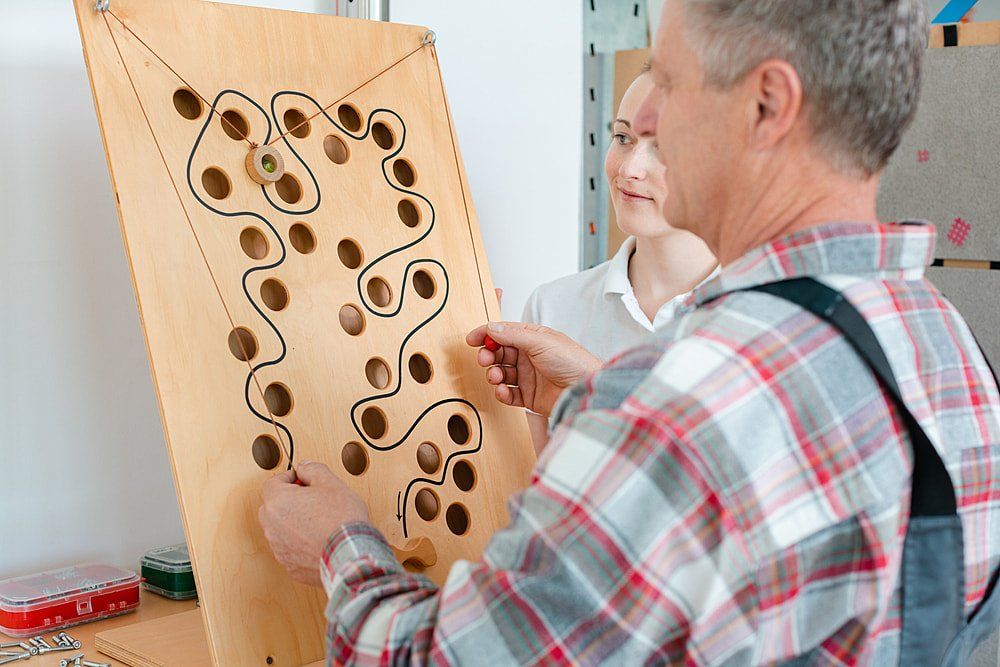Everything You Need To Know About Occupational Therapy

If you or your child are experiencing difficulty studying, working, living life independently or just doing the everyday things you love, occupational therapy is the right treatment for you!
While the general knowledge about physiotherapy is at an acceptable level in Malaysia, occupational therapy has been largely unknown among the general population.
In fact, as of 2021, there are only about 1,893 occupational therapists for our Malaysian population of 33 million!
Little do Malaysians know that an occupational therapist can identify the difficulties they face in their everyday life or job and come up with helpful solutions.
In this article, let's explore how occupational therapy helps you or your child with challenges in learning, physical pain, injury or a disability that makes it difficult for you to live your life!
This includes improvements to doing your job, children's education, independent living and even social activities!
Firstly, What Does An Occupational Therapist Do?
Occupational therapists offer a broad range of services that are specifically catered to the needs of the patient. Their support may include the development of skills such as:
- Sensory Motor Skills
- Sensory Processing Integration
- Visual-Motor Integration
- Visual Perceptual Skills
- Fine Motor Control and Coordination
- Gross Motor Control and Coordination
- Self-Care Skills
- Social and Peer Interaction Skills
- Executive Functioning Skills
- Handwriting

Who Needs Occupational Therapy?
There are many reasons why a person, whether an adult or a child, is experiencing difficulty in either their career, education or doing everyday activities.
In the same way, there are multiple benefits to consulting an occupational therapist and seeking professional help!
That's because occupational therapists work with a broad range of people that are experiencing both physical and mental health challenges, illnesses or disabilities.
Some of the key areas of activity where occupational therapists may provide support include:
- Essential everyday activities, including the likes of showering, grooming, dressing and eating
- Experiencing mental growth and education, especially for children to be able to participate as a young and effective learner in their own learning environment
- Career and work prospects of adults depending on the nature and intensity of work

How Does Occupational Therapy (OT) Work?
Occupational therapists and the respective therapy provided for every patient are all tailor-made for each person’s needs.
In fact, there is no such thing as a one-size-fit-all treatment! Occupational therapists start by looking at strengths and challenges, then create a suitable program on how to proceed with therapy.
Here is a quick step-by-step example of how occupational therapy works:
- A comprehensive evaluation
- Customized treatment programs to improve the child’s ability to perform daily activities
- An at-home program for carry-over of therapy techniques
- Recommendations for the home and school as appropriate
- Adaptive equipment recommendations and usage training as appropriate
- Continual guidance and support for family members and caregivers
These programs often include small yet meaningful and impactful activities to build certain skills, such as:
- Fine motor skills: a patient might be encouraged to pick things up with a pair of tweezers. Activities to improve motor skills might include jumping jacks or simulating an obstacle course.
- Preparing for school readiness: children are often expected to have certain skills when starting kindergarten. This includes fostering colouring and drawing, basic classroom tasks and behaviour, the ability to follow instructions, basic communication skills and socialisation skills as well.
- Self-care skills: for adults who are experiencing difficulties in everyday living, this will involve building up skills such as learning to use the fork and knife simultaneously, the ability to tie shoelaces and close buttons, dressing themselves and the general skills needed for independent living
- Sensory processing for children with learning disabilities: For children who demonstrate over or under sensitivity to certain sensations (loud noises, for example) or other challenges that makes it difficult for them to be receptive or maintain a calm state
Choose Well Rehab as your preferred centre for occupational therapy treatment in Malaysia
Occupational therapy can greatly improve you or your family member's quality of life At Well Rehab, we are Malaysia's leading provider of physiotherapy and occupational therapy services. We are the preferred, qualified and certified professionals that are trusted nationwide!
For more information about our therapies or services in Malaysia, you may contact us at +60 12 512 8487 or email
wellrehabmanagement@gmail.com




